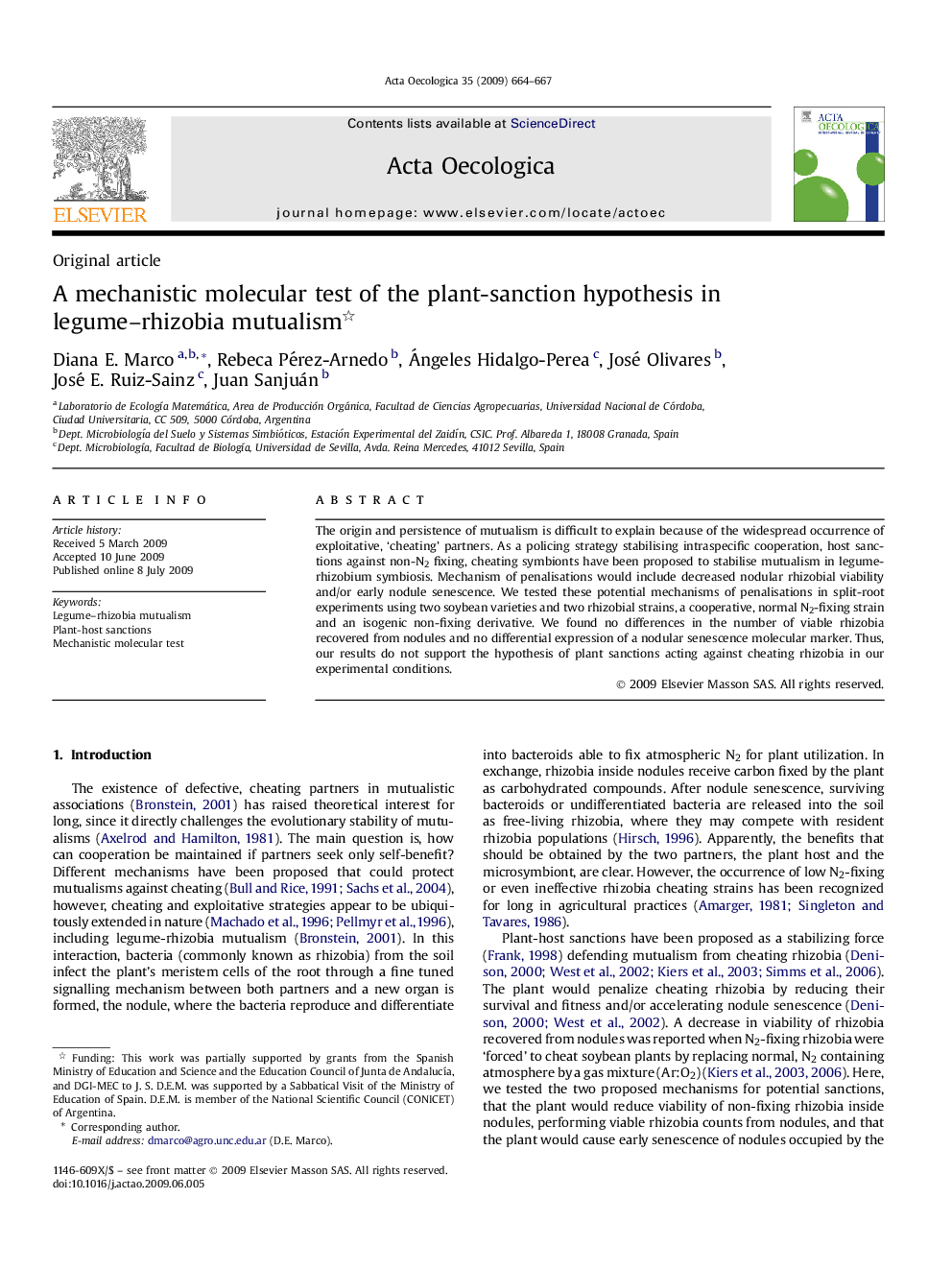| Article ID | Journal | Published Year | Pages | File Type |
|---|---|---|---|---|
| 4381432 | Acta Oecologica | 2009 | 4 Pages |
The origin and persistence of mutualism is difficult to explain because of the widespread occurrence of exploitative, ‘cheating’ partners. As a policing strategy stabilising intraspecific cooperation, host sanctions against non-N2 fixing, cheating symbionts have been proposed to stabilise mutualism in legume-rhizobium symbiosis. Mechanism of penalisations would include decreased nodular rhizobial viability and/or early nodule senescence. We tested these potential mechanisms of penalisations in split-root experiments using two soybean varieties and two rhizobial strains, a cooperative, normal N2-fixing strain and an isogenic non-fixing derivative. We found no differences in the number of viable rhizobia recovered from nodules and no differential expression of a nodular senescence molecular marker. Thus, our results do not support the hypothesis of plant sanctions acting against cheating rhizobia in our experimental conditions.
